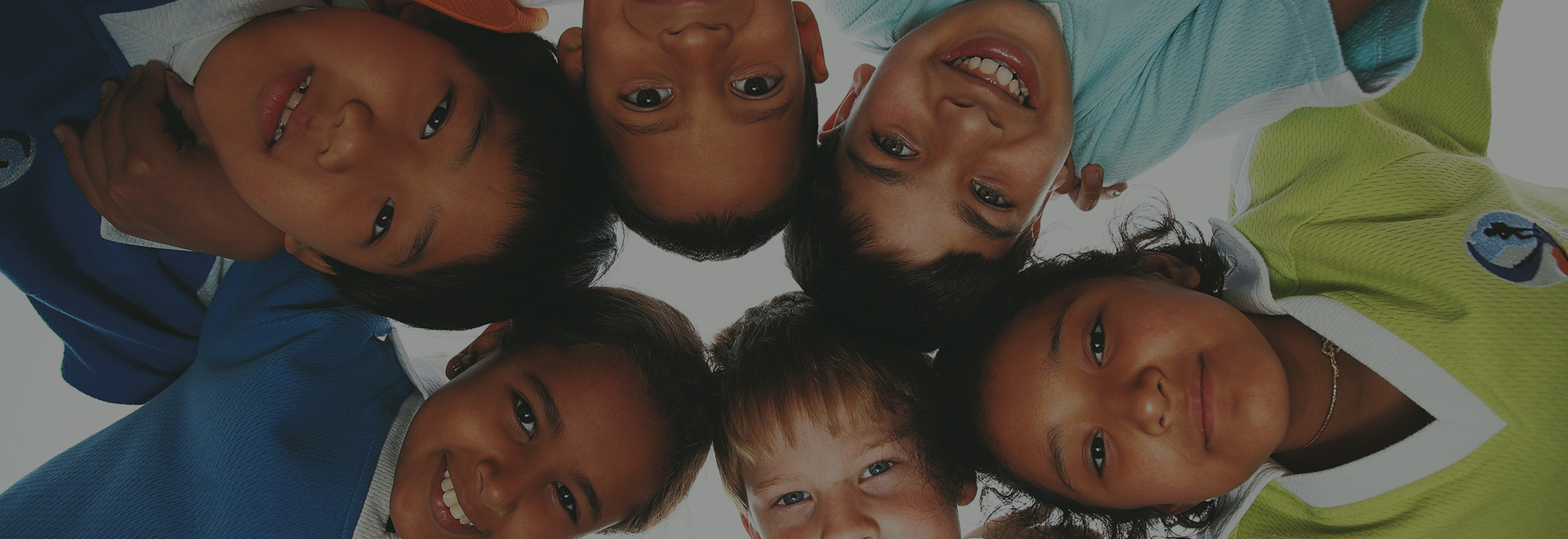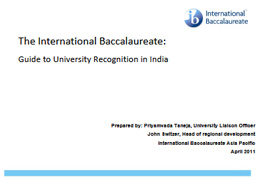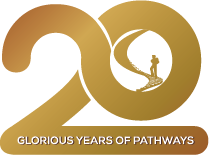About IB Schools in India
International Baccalaureate
- School must be authorized by the International Baccalaureate (IB) of Geneva
- School must offer at least one of the three programs offered by IB
- School should have a cohort of IB trained Teachers and maintain a generous budget for ongoing professional development
- School should meet the progressive infrastructural requirements of rich research resources in laboratories and library
- There are over 5600 schools across 159 countries all along the globe
- There are 208 IB schools in India while only 48 IB Continuum schools offering the IB PYP, MYP & DP Curriculum of the International Baccalaureate.
Updated from the IBO Website, Mar 2023
- 1968 in Geneva, Switzerland
- A group of leading educators from different countries grouped together to develop a contemporary international school curriculum that could be followed universally across the world
- One of the main objectives was to provide a rigorous, consistent high school curriculum for the children of globally mobile families
- In true spirit of its name ‘Baccalaureate’, a French term meaning pre-University, the curriculum was designed with a focus to prepare students to enter and successfully pursue tertiary programs offered by premier Universities of the world
- Development of a curriculum which is essentially dynamic and continuously evolving to remain relevant in the face of continuous change in all areas of the world
- Training of teachers to deliver the ever changing curriculum
- Assessment of the students based on the ever changing curriculum
The IB offers four programs - Primary Years Programme (PYP), Middle Years Programme (MYP), Diploma Programme (DP) & Career-related Programme (CP).
- IB Primary Years Programme (PYP) – a programme for age group 3-12 (grades Nursery–5)
- IB Middle Years Programme (MYP) – a programme for age group 11-16 (grades 6–10)
- IB Diploma Programme (DP) – a two year rigorous pre-university course that prepares students to enter top Universities globally as well as in India. The IB offers a formal external examination at the completion of the DP programme.
- IB Career-related Programme (CP) - a two year programme specifically developed for students who want to engage in career-related learning while gaining transferable skills in applied knowledge, critical thinking, communication and cross-cultural engagement.
Schools can choose to offer any or all of the programs. Each programme has independent process for accreditation. IB offers specific authorisation separately for each programme.
Transcending the curriculum goals, the inculcation of the attributes of the “Learner profile” is the mission of IB. Each IB student is expected to display the traits of the learner’s profile. Lesson plans, units of enquiries and projects are designed to ensure that the learning outcomes expose the students to and prepare them in one or more of the following learner’s profiles:
- Inquirers
- Knowledgeable
- Thinkers
- Communicators
- Principled
- Open-Minded
- Caring
- Risk-takers
- Balanced
- Reflective
The first programme envisaged in the IB curriculum was the Diploma Programme (DP) which is offered in grades 11 & 12 (grades 12 & 13 of the British system). The Primary Years Programme (PYP) and Middle Years Programme (MYP) followed in the 90s. Each of the three programmes and more specifically the DP is designed in a way that students from different streams could adapt to the programme requirements. Students find application based curriculum and project work quite encouraging and interesting. Each year many students join IB schools in grades 9 and 11 and have performed well consistently.
No. The British system follows the Key Stage concept and has 13 years of post pre-primary schooling (11+2). The Indian system follows the 10+2 system and schooling finishes in grade 12. The graduating age is however similar between grade 13 of British system and grade 12 of IB since the additional is actually in the early years. Though it might sound that a child is repeating the same grade, it is actually the next grade/level the child takes admission into, in the Indian system. What one has to understand thus is that if one is moving into the IB Diploma programme from the British System in the UK to India, one has to complete Grade 11 there to sit for the O levels or IGCSE exam, whereas in many countries including India, the same British curriculum exam is done at the end of Grade 10 (IGCSE). What you can’t do is finish Grade 10 in the UK (which means doing just one year of a 2 years programme) and join the IB Diploma programme!
- A comprehensive programme with inter relatedness between different subjects and themes
- Opportunity to engage in structured, purposeful inquiry thus helping students to construct their own learning and understanding.
- Develop a deep understanding of important and enduring concepts
- Conduct research into knowledge which has local and global significance
- Ability to relate classroom learning to real life situations and apply it in the here & now to bring about immediate change in own life & environment
- Acquire and practice a range of essential disciplinary and trans disciplinary skills
- Be encouraged to develop positive attitudes towards learning, the environment & other people
- Have the opportunity for involvement in responsible action and community service
- Develop independent thinking, yet appreciating that people with different views could also be right
- International mindedness by getting exposed to other world languages, cultures and practices, yet remain rooted in one’s own
- To become an informed participant in world affairs
- The programme inculcates values and builds character
- The curriculum is working to define a balanced programme of concepts, knowledge, skills, attitudes and actions for children
- The curriculum sets high standards for and has high expectations of students
- The teachers plan the programme together, providing a coherent education
- The curriculum promotes good teaching practice, both through the written curriculum documents and by sharing ideas among authorized schools
- It incorporates a range of assessment, recording and reporting strategies
- Teachers are not expected to discard years of well-earned skill and experience, rather teachers engage in reflection on their own practice, both individually and in collaboration with colleagues, with a view of sharing ideas and strength
- Whole school planning – collaborative planning structured around open-ended questions
- A wide variety of teaching strategies and styles can be accommodated, provided that they are driven by a spirit of inquiry and a clear sense of purpose
- The more substantial innovations of recent years can flourish
- All teachers are committed to Internationalism and continue to learn
IB Curriculum
In the IB DP programme (grades 11 & 12) students are not divided in standard streams. Each student is required to do at least one subject from the following six subject groups:
- Studies in language and literature
- Language acquisition
- Individuals and societies
- Sciences
- Mathematics
- The arts
*Students may opt to study an additional sciences, individuals and societies, or languages course, instead of a course in the arts.
IB offers examinations in more than 110 world and regional languages. A student can take up his/her choice of language as a self taught subject in the First language group (i.e. Language A). School provides basic outer support and guidelines.
IB believes that till high school level it is very important to develop a wide knowledge base and thus IB maintains adequate breadth in the curriculum. Whatever career one eventually pursues in life, some bit of math or science or understanding of humanities is necessary to manage world/one’s own affairs and be successful in life. While making a minimum choice from each discipline mandatory, IB offers multiple options within each group to accommodate individual preference and future academic/professional needs) e.g. there are three math Levels on offer; The Sciences group includes subjects such as Design and Technology, Computer Science, Sports, Exercise & Health Science etc.
Each subject in IB DP is offered at two levels, Standard Level (SL) and Higher Level (HL). For the Diploma programme, it is mandatory to opt for at least three subjects at Higher Level from either of the six groups.
- Yes, but only by special application where national governments or university systems require it.
- Students need to take prior approval from IB to get three sciences for the admission in specific undergraduate course. Students will be getting irregular diploma for this.
Three mandatory core themes of Theory of Knowledge (TOK), Extended Essay and Creativity Action Service (CAS) form the nucleus of the IB Diploma programme
- Concurrency of Learning
- International mindedness
- Positive attitude to learning
- High quality/high standards
- System of Continuous and comprehensive Assessment
- Challenging questions, critical thinking, research skills
- Most rigorous pre-collegiate curriculum
- A challenging programme of international education and rigorous assessment
- Professional Development to administer programme
- International assessment process that looks at a student’s portfolio over two years in addition to examination performance
- A blueprint that helps to develop inquiring, knowledgeable and caring young people who help to create a better and more peaceful world through intercultural understanding and respect
- Embedded in the curriculum
- CAS/TOK/Extended Essay process
- Assessment process that aligns student self-assessment, classroom teacher assessment and an external assessment source.
- Standardization of rigor and a wider lens for demonstration of meeting international standards
- A vehicle that encourages students across the world to become active, compassionate and lifelong learners who understand that other people, with their differences, can also be right
Examinations at the end of IB DP programme are conducted by the IB Research Unit presently based out of Cardiff, UK. All IB schools around the world conduct examinations simultaneously choosing one of the two examination cycles, May or November. Each school is assigned approved IB Examiners based in different parts of the world for different subjects. Grading is done based on criterion referencing and moderation is done by the Cardiff Office. Assessment is based on student’s actual learning, understanding and interpretation of a topic and not merely on memory recall ability. The Final grade is not merely the achievement score of the end of the programme examination but is a combination of the student’s project work and performance through the two years of the DP programme + the final examination. There are two kinds of assessments:
Formative
- Teacher assessments
- Internal IB assessments (taken at school, scored externally)
Summative
- External examinations (taken at school, scored externally)
College Admissions
- The IB Diploma is accepted by universities in over 140 countries.
- Universities around the world recognize the International Baccalaureate (IB) Diploma as a rigorous and challenging program of study and may offer advanced standing or credit for students who have completed it.
- Universities appreciate the IB program for its balance of depth and breadth, rigor, and focus on analytical thinking and critical skills, as well as its unique components such as the CAS (Creativity, Action, Service) requirement, TOK (Theory of Knowledge) course, and EE (Extended Essay) an independent research project.
- The IB works closely with universities in all regions for recognition of the IB diploma and maintains an up-to-date database of universities and their admission requirements to aid IB students in their decision-making process. Check it out at https://recognition.ibo.org/.
India
- The Association of Indian Universities (AIU) recognizes the IB Diploma as equivalent to the 10 + 2 Class of the Senior Secondary School, which is the eligibility criterion for admission to undergraduate courses in India.
- Most rigorous pre-collegiate curriculum
- IB students outperform their peers on assessments
- IB Diploma students have higher acceptance rates
- IB students perform better in post-secondary education
- IB has a positive impact on school culture
Yes, many universities in the US offer advanced credits in well-scored subjects in the IB DP due to its high standard. Students can accumulate these credits and potentially save up to one year of the four-year undergraduate program. The amount of credit awarded varies by university.
Yes, the IB is not a replacement for these standardized university entrance exams. Most universities in the U.S. require the SAT-1 test for math and verbal ability. Additionally, many universities in the U.S., Canada, and Europe require non-native English speakers to provide proof of adequate English ability, often through the IELTS exam.
- It refers to taking a break from academic studies after finishing school, which can provide opportunities for gaining work or volunteer experience, and enhancing resumes for future university applications.
- In many parts of the world, this is not considered as "losing a year" but rather as an opportunity to explore personal interests and develop non-academic skills before making choices for university courses.
- Yes, many colleges and universities in India recognize and accept IB qualifications for admission. In fact, some colleges have even started offering special admissions policies for IB students.
- Additionally, IB has been working with universities in India to familiarize them with the program and its curriculum, as well as to provide them with information about IB students' academic performance and readiness for university studies.
The Ministry of Education (MoE), Government of India (GoI) has established the National Testing Agency (NTA) to conduct standardized tests for admission to higher education institutions, including the Common University Entrance Test (CUET) for all Central Universities.
- IB students can now apply to Indian colleges through CUET as their counterparts from the National curriculum.
- Students interested in pursuing medicine may opt for three sciences, (Physics, Chemistry, and Biology) while dropping one subject from Group 3 - Individuals and Societies.
-
Additionally, the Association of Indian Universities (AIU) recognizes the IB Diploma as a qualifying secondary school diploma for admission to Indian universities. The AIU also has a conversion formula to convert the IB grading scale (1 to 7) into percentage equivalents.
For students applying to Indian Universities, upon request, the IB also offers a percentage mark sheet, in addition to the grade-based Diploma.
IB Grade Indian Equivalent Marks 7 96 – 100 6 83 – 95 5 70 – 82 4 56 – 69 3 41 – 55 2 21 – 40 1 1 - 20
No, students who want to pursue higher education in India are not affected by the late declaration of IB results. The Common University Entrance Test (CUET) is an all-India test organized by National Testing Agency (NTA) for all students, and it is not dependent on any particular board's results. After the CUET result declaration, students can register on the DU CSAS online portal and submit preferences for programs and colleges.
- Students are assigned a 'Predicted Grade' before sitting for the exams, which has an accuracy of 93% with a variance of +/- 1 point.
- While IBDP results are typically published on the 5th of July each year for the May examinations, students can receive provisional admissions in Canada, the UK, Europe, and Australia based on the predicted grades, which are confirmed upon submission of the final grade.
The IB DP course content for Sciences and Mathematics AA aligns with the prescribed syllabus of all India open entrance tests for undergraduate Engineering or Medicine studies. Furthermore, IB is recognized by all IITs and other specialized institutes.
Engineering
- For students interested in engineering, Physics, Chemistry, and Math at the Higher Level are recommended, whether in India or overseas.
Medicine
-
In India, studying Medicine requires Physics, Chemistry, and Biology.
In the UK, studying Medicine requires 2 Higher Level sciences.
In the US and Canada, Medicine is a postgraduate degree.
- Yes, Pathways World School has a College Advisory Cell that begins working with students and parents as early as grade 9.
- PWS also hosts University Fairs where both Indian and overseas colleges/universities provide information sessions.
- IB and PWS collaborate with Indian universities to showcase the strength and rigor of the IB program and the unique contributions IB students bring to college campuses.
PWS can provide students with a letter explaining the IB result timing and predicted grade accuracy to support their application to Indian universities. PWS can also provide copies of the Association of Indian Universities (AIU) recognition letter and percentage equivalence of IB grades within two weeks of the result declaration.





